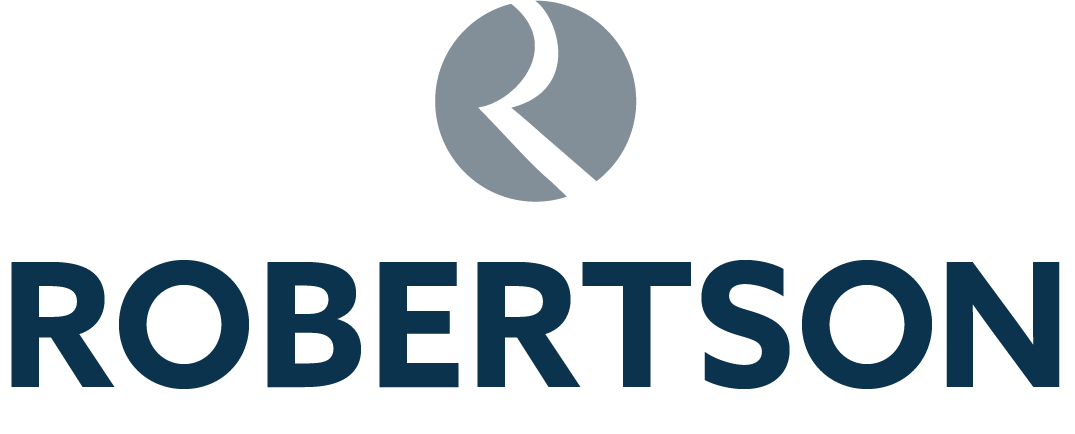
No wrong path: HR Director Jill
Our 'No wrong path' series supports the Developing the Young Workforce (DYW) campaign for young people who may feel disheartened by their exam results. If that's you, or you're not sure what route to take after school, we hope the stories of employees here at Team Robertson will show that there's no right or wrong path.
Jill, did you have thoughts on a career when you were at school?
At the time, I thought I did. I took mainly science-based subjects but didn’t get the Higher grades I was hoping for to secure my first-choice degree at university. I was disappointed but went ahead with my second choice, Anatomy and Physiology. Once I started the course, it was clear that science wasn’t for me, so much so that I left my halls and headed home when my parents were on holiday.
My mum had been successful in a science-related career, so I’d thought why not follow her example? But looking back, it was because I had no idea what I wanted to do and I didn’t find the careers advice from school helpful at the time. I wasn’t as focussed in my fifth year at school, which showed in my exam results.
I decided to get a job and worked full-time in Next as a retail assistant. I worked hard, proved myself to be a good leader, and was promoted several times during my time there. During the year, I applied to university through clearing and started an Economics degree. This was my second chance at higher education and I loved it.
I stayed at Next on a part-time basis and took on an evening bar job at a local nightclub where many of my student friends went, so it often felt like a night out – but one where I was earning a salary and tips. I was adamant that I was going to leave university with no student debt.
How did your career in human resources start?
I graduated in the middle of a full recession which meant job opportunities were absolutely limited. I secured a position with a recruitment agency, my first step into the world of HR, where I worked for the next five years. It was hard sales and commission based which wasn’t for me – most definitely the wrong path – but I was happy to be employed and gave it my all, learning lots along the way.
How did you end up at Robertson?
I moved on to a recruitment consultancy where I managed several client accounts, including Robertson. Over time I got to know the company and worked well with the HR team. It was someone I’d placed at Robertson who alerted me to a permanent position in the HR team and convinced me to apply – they’d had such a positive experience and thought I’d be an ideal fit for the role and team. It turned out to be my best move.
You were recently promoted to HR Director, tell us about that journey:
I’ve always been a firm believer that if you work hard, display good qualities and make the most of your role, it will get you noticed and lead to new opportunities. I started as the Resourcing and Development Advisor in 2012 and was promoted to several positions, including Strategic Business Partner and Head of People and Organisational Development, before becoming the HR Director Group and Construction.
I think my own story reflects the career development opportunities we’re so set on providing for employees here at Robertson.
What’s your advice for any young person who might be disappointed in their exam results or who’s not sure what they want to do next?
Listen to your intuition and run your own race. Just because someone else is doing something, it might not be for you. Some people accelerate quickly, others progress later in their career; so focus on the things you have control of – your time will come.
Interviews – especially your first – can feel daunting, so we asked Jill to share some tips:
- Take time to prepare, don’t walk into an interview and think your authentic self will be enough.
- Pre-empt questions and prepare your answers. It’s perfectly fine to take along notes with examples and questions – no one is expecting you to remember everything.
- If you know people who work there, have a chat to find out more about the company and what they like about it.
- Look at the company website and social media for signs of culture – if you think you’ll be a great fit, jot down some reasons why.
- Research who works there, even better if it’s the people who will be interviewing you – you’ll feel more comfortable if you’ve already seen their faces.
- Avoid unnecessary stress – do a dry run to where your interview is taking place so you’re familiar with the route and building and arrive in good time.
- Get a good night’s sleep the night before.
- Dress smartly – even if it’s a laid-back culture – but do feel comfortable.
- Follow up after an interview – send an email to thank the interviewers for their time and say that you’re still interested in the role and keen to move to the next stage – keep it brief though.
- Sometimes you don’t get a job, so ask for constructive feedback and use the experience to improve.
And what advice for those starting a new job?
- Focus on continuous development and stretching yourself – if you feel uncomfortable sometimes, that means you’re learning.
- Get comfortable asking for and receiving feedback, and use it to take positive action in your development.
- Use a mentor wherever possible, no matter how senior a role you end up in.
